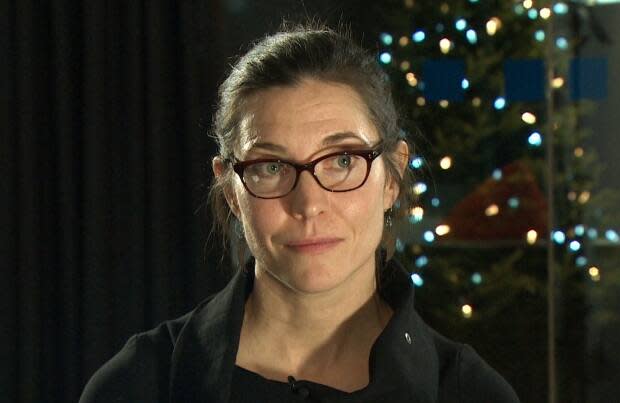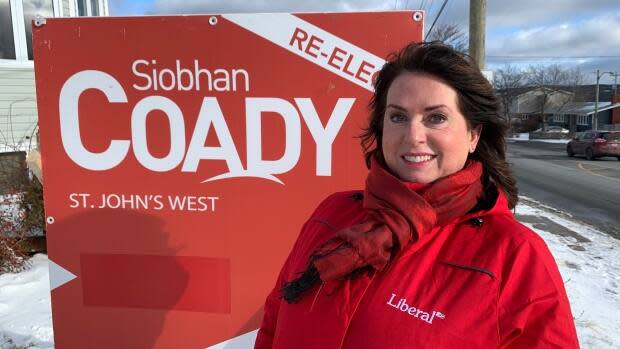Hike taxes and avoid cuts, progressive group says with alternatives to Greene report


People's Recovery, a volunteer group of 60 individuals and organizations, unveiled its own economic recovery plan for the province Wednesday, calling it an alternative to the premier's economic recovery team (PERT), and the pending Greene report.
The progressive group, which is against privatization and cuts to public spending and services, is endorsed by the Newfoundland and Labrador Federation of Labour, $15 and Fairness, the St. John's Status of Women Council and Memorial University's Faculty Association, among others.
Federation of Labour president Mary Shortall, who quit PERT in January over concerns about its process, is also a member of People's Recovery.
While Liberal Leader Andrew Furey has said there will be no mass layoffs and that the recommendations in the as-yet-unwritten Greene report will be fully debated, there is widespread concern that chair Moya Greene and her group will recommend service cuts and other tough decisions.
"This, in many ways, is a counterpoint to the premier's economic recovery team," said Angela Carter, a political science professor with the University of Waterloo, and co-facilitator of People's Recovery.
The group started in November, with small meetings of mostly academics and people in the non-profit sector, but has since grown.
"We have environmental groups, women's groups, anti-racist groups, people who represent the small business sector, labour organizations and labour advocates. So a very wide and diverse range of people are at the table with us," Carter said via FaceTime Wednesday.

She says they were inspired by PERT to find another path to fixing the province's financial crisis.
"There's a knee-jerk reaction in the province to cut spending, and the sort of slash-and-burn mentality," Carter said. "But what that means for Newfoundlanders and Labradorians is that our services then become impoverished."
"So there is another option. There's another way here."
Increase taxes for the wealthy
Instead of cutting, the groups wants the government to look at the other side of the ledger and capture money left on the table.
According to their revenue fact sheet, they propose a two per cent tax increase for those in the top two tax brackets, a new tax bracket for people earning over $1 million, a one per cent wealth tax on net assets over $20 million, a 20 per cent luxury tax on luxury vehicles, boats and aircraft over $100,000, and taxing capital gains the same as wages.
"Some of it is directed toward making sure that the very richest people in our society, that are currently still doing really well even during COVID, that they pay a fair share of taxes going forward," Carter said.
"Middle income people in Newfoundland and Labrador pay about the same amount as middle income people in other Atlantic provinces. But if you are very wealthy in Newfoundland and Labrador, you actually get a sweet deal on taxes," she said.
People's Recovery also believes in a $15 minimum wage, and says reducing unemployment by three per cent will create just under $50 million in revenue for the government.
They're also pushing back on the idea that provincial government spending is out of control, calling it a "myth."
"If you look at comparisons with other Atlantic Canadian provinces, for example, we see that Newfoundland and Labrador's program spending is actually lower per GDP than all of those provinces," she said.
Liberals welcome discussion
Furey, who created PERT and appointed Greene as its chair last fall, was not available for an interview Wednesday, but St. John's West candidate Siobhan Coady was.
"I am very, very pleased to have more people engaged in this discussion. This is exactly what I think we need in Newfoundland and Labrador. We need all, all of us to be engaged in this discussion," Coady said.
When it comes to increasing taxes on the wealthy, Coady says the province completed a review of its tax system in 2018.

"We were middle of the road and I think that's where we want to be. But there's certainly always value in continuing to look at our taxation system to make sure that we're competitive."
She said she will take People's Recovery's recommendations seriously, and there will also be public consultations on the PERT report.
People's Recovery says it will release more policy in the coming weeks.
Greene's interim report for PERT was due to government on Feb. 28, but she said it will be delayed for five or six weeks, blaming the COVID-19 pandemic and the current lockdown for the delay.

